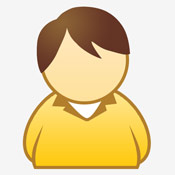
samalbee 
Sam Albee
Sam Albee
W Geoblogu od: 13.10.2021


0 wpisów
0 komentarzy
0 zdjęć
0 multimediów
szacunkowo zwiedził 0% świata (0 państw)

lokalizacja macierzysta:
 Stany Zjednoczone Ameryki
Stany Zjednoczone Ameryki The head of stateOf the 27 EU states, seven countries - Great Britain, Sweden, the Netherlands, Spain, Denmark, Luxembourg and Belgium - describe themselves as parliamentary monarchies - domyhomework.club . In these cases the monarch is the head of state . Formally, the monarch has considerable influence in some of these countries, which can be traced back to old formulations in the constitutions. In practice, however, the monarch's power is strictly limited. The monarchs of the EU basically fulfill purely symbolic tasks, so that these states come very close to the ideal model of parliamentary democracy. In five republics - Italy, Greece, Malta, Slovenia and Germany - the tasks of thePresidents are also more of a symbolic nature. In these states, the head of state is not elected by the people, but, as in the Czech Republic and Latvia, by parliament.In the other 14 member states - Ireland, Austria, Portugal, Finland, Estonia, Lithuania, Poland, Slovakia, the Czech Republic, Hungary, Romania, Bulgaria, Cyprus and France - the head of state is elected by the people and the term of office is between four and seven years . The French President, who has several executive powers, has a prominent position . Thus France consists of a double executive branch, with the president facing the head of government (prime minister)at least in fact occupies a dominant position. While the prime minister is in charge of domestic, social and economic policy - https://domyhomework.club/social-studies-homework/ , the president remains almost unchallenged in foreign and security policy.The President can also influence the appointment of ministers , but this is usually done in close coordination with the Prime Minister. The constitution also allows the president to have further influence (do my english homework the homework helper). He can both dissolve parliament and declare a state of emergency,which means that his power is constitutionally unlimited. So far, however, only Charles de Gaulle has had the "emergency article" during the coup of some generals in Algiers in April 1961Made use of. With over 900 employees, the French President also has the largest human resources compared to his EU colleagues and thus forms a considerable counterweight to the ministerial bureaucracy.Read also:Mass of bodies Parliamentary government system From the basics to the first game or app Creation of the foundations of analytical geometry Number theory: Richard Dedekind









